Text
Female Chinese Adoptee in the US
Hi, I’m a female Chinese adoptee who spent more time with a foster mother than in the orphanage. I was adopted before I was half a year old by a white American single mother, and later raised by two white American parents once she married. I have a younger sister who is also adopted from China, but we aren’t blood related at all (yes people do ask me if we are). I grew up in a largely white portion of the south and went to religious schools with largely white populations (My mom did not adopt me from some misguided Christian white supremacist stance of saving me). I’m currently getting a degree in theater and film, so well thought out representation and minority stories are very important to me. Every adoption story is different, and as far as I can find, you only have the one POC profile on Chinese adoption and I wanted to give my point of view for variation.
I want to preface this by saying that my adoption has had a big impact on my life, but it is not my identity, and the impact it’s had isn’t something that I was consciously thinking about as it happened. It’s mainly as I’ve gotten older and looked back that I’ve realized how it has impacted certain aspects of my life. Growing up, my adoption isn’t something that was always on my mind, and it’s only through trying to better understand myself and who I identify as that I’ve come to analyze it more. Also sorry this is super long, I just wanted to be thorough.
Beauty Standards
Again, not something I consciously thought about when I was younger. Contrary to the popular stereotypes and fixations about Asian eyes, the shape of my eyes wasn’t something I thought about. What I was self-conscious about when I was a kid was how “flat” my face was, especially my nose. I felt like I didn’t have any definition, and because I didn’t grow up seeing many other Asian people or POC for that matter, I didn’t understand that different races had different facial structures. I just internally accepted that the caucasian facial structure was how people were supposed to look. I’ve since accepted the way I look, and while I don’t think I’m the hottest chick out there, I like the way I look.
Culture
When I was young, my mother enrolled me in Mandarin Classes and Chinese Culture classes/camps designed for Chinese adoptees to help me connect to my native culture and to surround me with other people like me. At one point I was even enrolled in a Chinese Fan Dance class if I remember correctly. I’m sure I had fun with some of them, just as I’m sure my attention span was short when I was a kid and that I got bored quickly. I didn’t have a problem with them at the time, but looking back I do remember feeling mildly annoyed with going to the events specifically for adopted kids because if felt like people just assumed we’d be friends because off of us shared the adoptee experience. I get that same feeling of annoyance when people to this day tell me “Oh, so and so is adopted from China too! You’d like her,” because I personally resent the idea that people assume my adoption is my identity and that alone is enough for me to connect with someone.
Identify Issues
I have always identified as a Chinese-American. My parents were always very honest with me about my adoption for as long as I can remember, so I was always somewhat aware that I was different. That being said, growing up surrounded by white people meant that the people I identified with where white, and there was a time in middle school where a teacher mentioned something about me being different in regards to my race (we were talking about casting for the school play). For a good 5 minutes I was confused about what she meant until I remembered that I was Chinese and not white like everyone else. That’s a moment that’s stuck with me throughout my life and I’ve always been a little ashamed of forgetting myself.
Recently I was asked if I identify as an immigrant, and I didn’t know how to answer. Technically I am one. At one point I had a green card and my mother had to fill out paperwork to make me a US citizen, so I don’t feel like I wasn’t an immigrant, but I also don’t identify with the typical image of immigrants. My story of finding my place in America isn’t the typical story of POC immigrants so I don’t necessarily feel solidarity with them.
Within Asian Americans’, there’s been a stereotype about them being too Asian, but not Asian enough which is something I’ve also struggled with on both sides. In high school when I mispronounced pho, I was accused of being a “bad Asian” by a white friend, but when I was talking diversity politics with a teacher, my point of view was dismissed because she knew I was adopted so I was “basically white anyway.” While I do try to defer to the point of view of Asian immigrants and descendants of immigrants when it comes to certain topics and experiences, I also think it’s important for people to understand that when I interact with the majority of people, I am treated as an Asian woman. I live life as an Asian woman, not a white woman. Alternatively, because I grew up in such a white area, I admit that I grew up with a lot of internalized racism and have found myself judging mixed race Asians for the same thing from time to time though I am actively trying to unlearn that habit.
Honestly, as I get older and try to understand who I am more, the more confused I get over my identity. It’s still something I’m working to understand.
Language
Outside of the Mandarin classes I went to briefly as a kid, I also took 3 semesters of Mandarin in college to fulfill my language requirement. I did actively choose to take Mandarin because I thought it was important for me to learn, not because of my culture, but because as an aspiring Chinese American actress, many breakdowns for roles require a knowledge of fluent Mandarin. I am not fluent. I fulfilled my requirement and haven’t pursued it any further as of yet. I might try again in the future.
Daily Struggles
Since turning roughly 18, whenever I go places with my parents, we’re typically asked if we want to split the check, but if my younger sister is with us, no one asks. I don’t know if it qualifies as a struggle, but it’s something I’ve noticed that biological parents and children don’t go through as much. I’ve also come to explain that I’m adopted when I’m talking about my childhood or my past. I do it partially to give context to whatever story I’m about to tell or for whatever I’m explaining. Ex: I’ve had to explain my background during a workshop when I wrote a paper on representation in media for Asian Americans because the people reading the paper didn’t know I was Asian American simply from the context of the personal experiences I presented in the paper and were guessing my race off of my white sounding name. I’ve also had to explain my background when another Asian American commented repeatedly that I “sound so white.” I’m also very open about the fact that I’m adopted if people ask because it’s not something I’m ashamed of, and I want to normalize the idea of adoption.
When I was only a couple years old there was a girl who made fun of me for being adopted. It’s one of my mom’s favorite stories, because rather than letting the girl get to me, I said something snarky in return, but I’m assuming that’s why I try to normalize the idea of adoption, because being adopted doesn’t make me any less of a person than someone who is still with their biological parents.
I also witnessed a lot of the Asian eye jokes, but curiously enough they were never directed at me. I guess that says something about the kind of environment I lived in, because when I said something to a boy drawing an “Asian smiley face” he looked stunned and was surprised that I was Asian. I guess this instance doesn’t have as much to do with adoption but is more of a comment on the stereotype about how Asians are supposed to look distorting the fact that we actually look like regular human beings and not caricatures.
Dating and Relationships and Home/Family Life/Friendships
I’m putting these two in the same category because my abandonment issues have had a similar impact on them. As a kid, I always hated leaving when we were visiting my out of state grandmother or whenever my mom would go on a work trip. I would cry and fuss, and even as an adult, I hate saying goodbye for a long period of time. Intellectually, I know I’ll see these people again, but emotionally I worry about what if? I also get really scared and start tearing up if my parents are late coming to pick me up from the airport when I come to visit. I worry about being left alone. And I want to emphasize that this isn’t a conscious, “Oh, I’m adopted, I’m worried I’m going to be abandoned again” type thing. So much of these feelings are internalized and subconscious. It’s just that fear of never seeing someone you care about again, and even though I’m a logical person who knows that they’re just late, I can’t override that fear.
I have never had a romantic relationship and I have a few close friends, but I’m not the life of the party. I’ve always been careful about forming connections with people and have even actively resisted it when I was younger and was going to camps or doing something where I’d only see these people for a small amount of time. I had the mentality of “It’s not worth it because I’ll never see them again,” and that’s another thing I’m trying to overcome, because I still don’t like making connections if I know they’re not going to last. For similar reasons, I’m also very bad at vocalizing my affections and feelings towards people. I’ve never liked letting people close, and there was a time when I was a teen where I even distanced myself from my family, and that’s a bridge I’m still trying to repair to this day.
My family has always been understanding of the fact that I’m dealing with a lot when it comes to understanding my adoption and my identity, but there are also some things that they don’t understand and it can be hard to talk to them about things like my cultural identity and growing up around tons of micro-aggressions that they’ve never had to deal with.
Misconceptions
The idea of who my real parents are. The idea of one set of parents being more valid than the other just seems fucked up to me, especially when it’s been posed to me as “So if they tell you to do something, do you ever just say, ‘No, you’re not my real parents, you can’t tell me what to do.’” My adopted parents are still my parents. I also think of my biological parents as my parents. I have never hated or resented my biological parents for giving me up nor have I ever used my adoptee status as an excuse to act out towards my adopted parents. While I do know about the One Child Policy, I don’t know the specific circumstances surrounding why I was given up for adoption. I don’t see the point in being angry about it without knowing the whole story, and I’ve come to terms with the fact that I may never know the whole story.
I also don’t feel particularly grateful towards my adopted parents or like I owe them anything for adopting me. Don’t get me wrong, I still love them, but I’m not actively trying to repay them for adopting me. I don’t owe them my life, they’re just my family.
Self-Esteem
I had a lot of self-esteem issues growing up, and they still persist today. They aren’t something I linked back to my abandonment issues until I sat down and talked to a therapist. I’ve always been a perfectionist to the point where I was never happy with anything I did, unless it was perfect. I literally never felt good enough. Part of the reason I distanced myself from my family is because I didn’t want to be a bother. Intellectually I knew I wasn’t going to be abandoned again, but I still felt like I had to be as good as I could possibly be to make sure. This is another one of those things that was never consciously thought about, it’s just how things were. I didn’t feel like I or whatever issues I was having was worth the trouble of bothering people, especially my parents, so I just didn’t, and had a habit of keeping a lot of things bottled up inside without telling anyone*. It’s another thing I’m also currently working to better my perception of myself.
*Just because I was trying to be a good kid and didn’t vocalize affection much does not act as an excuse for writing a submissive, emotionally stunted stereotype of a Chinese Adoptee. I am also snarky and sarcastic and opinionated and outgoing with my friends.
Things I’d like to see less of
Stop using adoptees in the abortion argument in general, especially if you don’t understand the adoption process or the issues adoptees face. Stop asking me to choose who my real parents are. It also bothers me the way people romanticize adoption, even if it’s people in various fandoms goofing around. People who adopt are not saints. Fandoms who make light of adoption and squee about wanting to adopt a character or wanting one character to adopt another makes light of a whole situation. Adoption is a great thing. It’s great for kids without families to get a family, but it’s also a painful thing for the kid, because a kid needing to be adopted means that they’ve also lost a family at a young age. Please be sensitive of that. Don’t romanticize adoption. People trying to empathize with those internalized feelings of abandonment and mistrust when they don’t have the same or similar experiences. Other people are allowed to feel those things, but please understand that the degree of what we feel is immense. From a personal perspective, when people try to do that, it feels like they’re making light of what I feel.
Things I’d like to see more of
Just normalizing the idea of adoption and understanding the good and the bad. Adoption stories in media that don’t hinge on the angsty, rebellious adoptee being angry at their adoptive parents. Stories that give adoptees identities outside of their being adopted. Understand that all adoptees are not the same. We all have different experiences based on race, religion, the region we’ve been adopted into, the kind of parents we have. There are so many variables that make up who we are.
1K notes
·
View notes
Text
No Forks Given: A chef's quest to spread kamayan in America
kickstarter
If you are familiar with Sarap: A Filipino pop-up, please support our fellow kababayan, Yana Gilbuena, founder of SALO! I actually had met her a few years back at one of her pop up dinners in Detroit. Her project is a compilation of stories of her journey and the people she had met during her state tour project to bring Filipino food to America in a 52 week span.
Myself as an adoptee who has a passion for cooking and has utilized cooking through means of reclaiming parts of my Filipino identity, it is through learning how to cook the foods that my our Filipino ancestors have shared communal food sacrament that I find a lot of shared inspiration of her project. I urge for her success to share her story.
Please help pledge to make her aspirations come to life, and if you're unable to donate, you can still help out by sharing her project!
#Asian#Filipino#pinoy#Philippines#yana gilbuena#dinner#kamayan#Pilipinas#Filipino food#community#cooking#pop up dinner#inspiration#books
0 notes
Text
TRIP TO UZBEKISTAN
Hi, I'm Rosalia, I'm 22, I live in Italy. I was adopted and in 2015 I found my mother... she is very ill has fluid in lungs, and I would like to see her before she die .
This donations mean so much for me, I saved some money but are not enough. My mom might be die soon, and I wanna hug her, kiss her, talk to her very soon.
I'd like to help me by sharing my page or donating.
If you'd like to help here there's my account
https://www.gofundme.com/3rksdkg
0 notes
Video
youtube
Melissa Konomos had always felt a longing to to connect with her birth parents and to understand why she had been placed for adoption. She spent seven years searching for her birth mother until she received the call that they had found her birth mother and that she wanted to meet. This is the story of Melissa's journey and the challenges that come with reuniting.
9 notes
·
View notes
Text
This is for the adoptees of color struggling with family in the wake of Trump’s victory
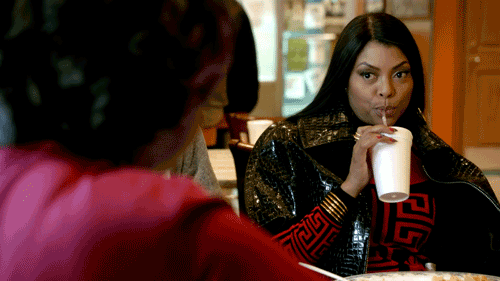
To my fellow adoptees of color, please know that you are not alone during the aftermath of this election. I know many in our community are coping with feelings of panic and trauma over Donald Trump winning the election and what may come in January. At the same time, I know these feelings are only magnified for those forced to navigate extremely challenging and even painful situations with adopted family members who are white.
Keep reading
#adopted#adoption#adoptees#transracial adoption#transnational adoption#international adoption#poc#trump#people of color#solidarity#family#racism#race
36 notes
·
View notes
Text
My Story as a Chinese Adoptee
https://www.youtube.com/watch?v=a3cRbE6RjHQ
I created this channel and video to connect and share with adoptees and to promote adoptee voices. Feel free to drop me a line on my social media or share this video :D
4 notes
·
View notes
Link
#NAAM2016#AsianAdoptees#Asian#Adoptees#Adopted#Adoption#Asian American#Asian American Studies#Asian Pacific Islander Studies#Filipino#Chinese#Korean#Japanese#Hmong#Cambodian#Thai#Laotian#Vietnamese#Myanmar#Malay#Indonesian#FlipTheScript
3 notes
·
View notes
Photo

Filling out paperwork at a doctor’s office is simple if you’re an adoptee.
The secrecy of closed records is literally killing adoptees. End the discrimination!
225 notes
·
View notes
Photo
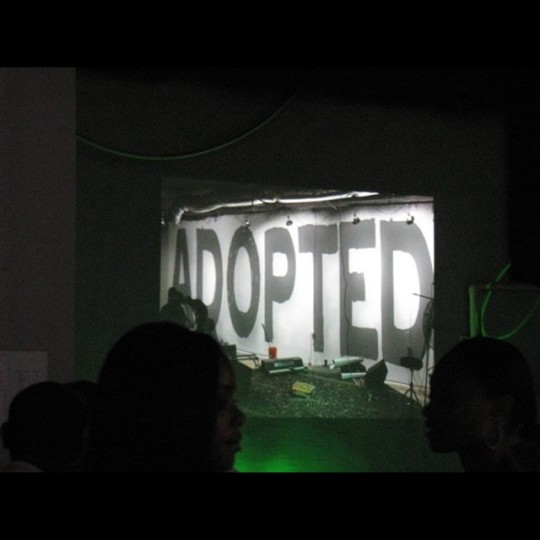
It’s National Adoption Month! Us adoptees are taking back our narrative. Only an adoptee can tell you the joys and challenges of being adopted, not the agencies and not the adoptive parents. Please don’t forget that trauma and grief are also involved and are often forgotten along with the birth/first mothers and families. It’s time to #FlipTheScript !! #youfollowthefilm #myindia09 @sluttybuddy @saywhatfoo
19 notes
·
View notes
Video
youtube
What does flip the script mean? Adoptees explain in this powerful video during National Adoption Month.
bastardplanet - Share?
151 notes
·
View notes
Video
youtube
Those who are trans-racial adoptees, do you ever engage in these conversations with your adoptive families?
3 notes
·
View notes
Text
If I met my birth mom
Do I even call you mom? Although I don't remember, I know you gave me life. our time was brief until we had to say goodbye. When I was 8, I could not help but wonder. Do I have your smile? Or do I have my father's eyes? By the time I was 14, I began to feel anger, and confusion. I didn't understand why you chose to put me up, but as I aged, I began to accept my fate. I I wish you could know, I don't hold any anger in my heart towards you now. I grew up well, and I hope I am everything you would expect me to be and more, but I wonder if you think of me, as much as I think of you. I may never fill the void that I feel in my soul, but I know things were for the best. Now here I am at 20, and i still have many questions sometimes it makes my head spin. But please know, dear mother, I wish for us to meet, and know you will always have a place in my heart.
1 note
·
View note
Link
#NAAM2015#Asianadoptees#Adoptees#adopted#adoption#asian#asian american#asian american studies#Filipino#Chinese#Korean#Japanese#Hmong#Cambodian#Thai#Laotian#Vietnamese#Myanmar#Malay#Indonesian#FlipTheScript
3 notes
·
View notes
Text
National Adoption Month 2015
In case you haven’t heard, it’s National Adoption Month (NAM, #NAM2015). Overwhelmingly those speaking out about adoption have traditionally been adopters and adoption agencies. No longer. We, adoptees, are speaking out to strike back at the willful ignorance that plagues us.
It’s up to us to ensure adopters and adoption agencies aren’t the only voices heard regarding adoption. The only people who can speak about the adoptee perspective and what it’s like to be adopted are adoptees. Period.
How did the Flip the Script movement start? Don’t be fooled by thieves who have tried to appropriate the phrase for their own experiences. #FliptheScript was started by adoptees for adoptees. Lost Daughters provide a synopsis of the movement’s history and media coverage here.
Want to join the conversation but aren’t sure what to talk about? Lost Daughters has compiled a list of ideas, broken down by days of the month, for your consideration. You can find the list here.
Join us. Join the many adoptees already speaking out. The more adoptees that speak out, the more we’ll be heard until we’re a chorus impossible to ignore.
On Twitter you can find me here: @TheCrypticOmega
Signal boost, guys? @brandx @bastardplanet
42 notes
·
View notes
Photo
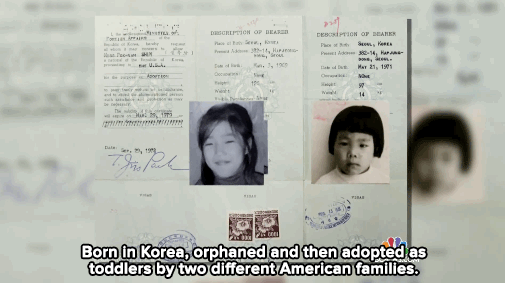
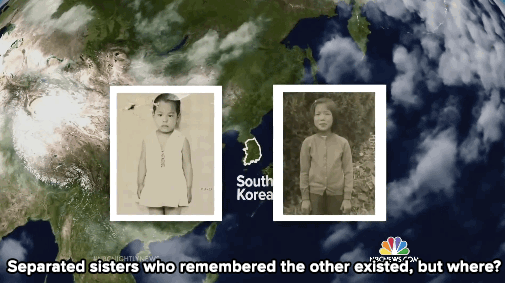
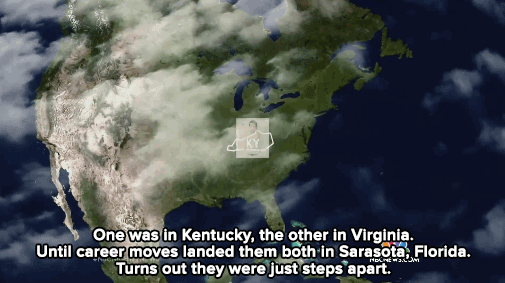
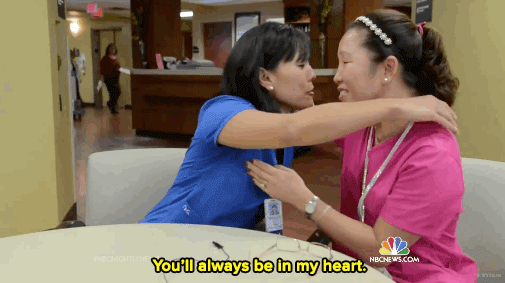

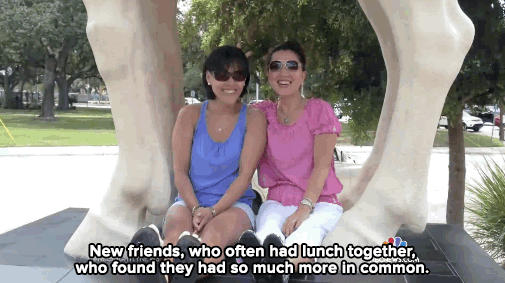

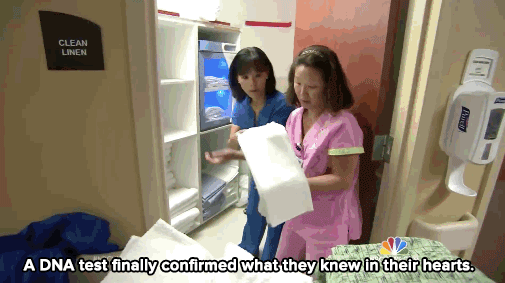
After 40 years apart, these sisters found each other working the same job
Pok-nam Shin, now known as Holly Hoyle O'Brien, and Eun-Sook Shin, now known as Meagan Hughes, were both orphaned from a young age in their native South Korea in the 1970s before being adopted by American families. "In my heart, I knew,“ O'Brien told Sarasota Herald-Tribune. "I knew she was out there somewhere.” It turns out she was right in front of her.
60K notes
·
View notes
Photo


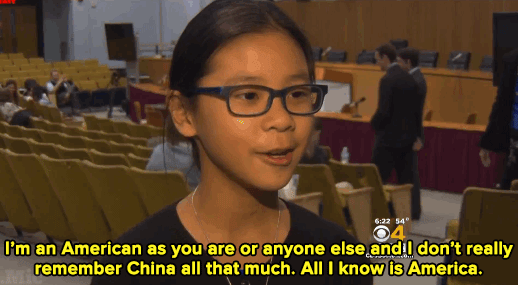


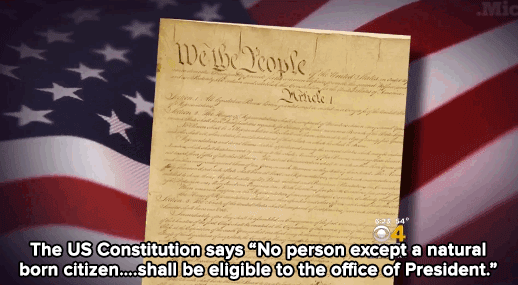
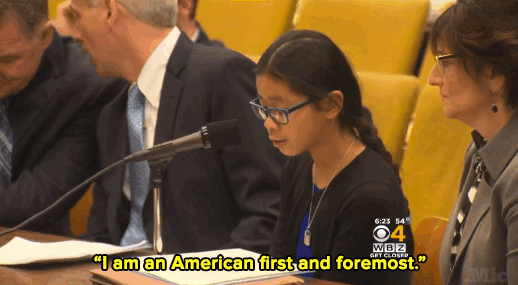
American kids are often told anyone can grow up to be president — but if you’re 10-year-old Alena Mulhern, that’s just a big fat lie. Rather than accept it, she’s taken on the herculean task of changing it.
227K notes
·
View notes
Link
11 notes
·
View notes